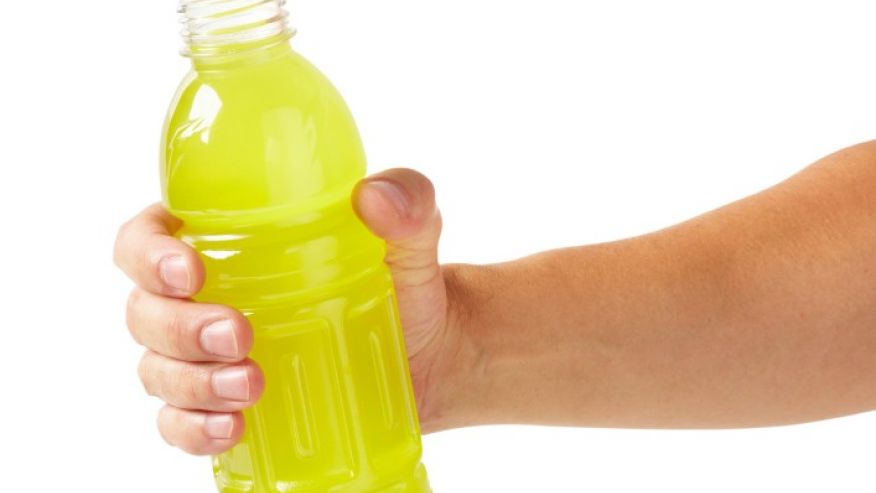Sports drinks get a lot of hype. You don’t have to watch a televised sporting event for very long before you’re inundated with advertisements of sweaty athletes selling you a neon-colored sports drink of some sort.
Next to any gym locker in high schools, fitness clubs and professional facilities you will see coolers full of sports drinks distributed throughout the various
Do sports drinks like Gatorade and Powerade really improve performance and recovery, or have we fallen victim to a brilliant advertising strategy?
What Do We Get Out Of Sports Drinks?
Let’s get down to basics. When you workout, your body excretes water and salt and you lose your chemical balance of electrolytes. It is a good idea to regain that balance quickly or else you could risk dehydration, muscle cramps, and worse. Sports drink manufacturers will tell you that the best way to replenish those lost nutrients is with their products, but is that really the case? Sports drinks do contain sugar, though.
Is Sugar The Enemy?
Sugar isn’t necessarily the enemy a good workout. You need to replace your glycogen stores within a half hour after your workout or you risk burning muscle instead of fat, but there is such a thing as too much sugar after a workout. Do sports drinks contain more sugar than a doughnut? Doughnuts are notorious for having lots of sugar and carbs, but the nutritional facts may surprise you, especially when compared to a serving of a sports drink.
Let’s take a look inside of the nutritional breakdown of the two leading sports drinks, Powerade and Gatorade and how they compare to a glazed doughnut:
Powerade (per 20 oz serving)
Calories: 200
Carbs: 47.5g
Sugar Carbs: 35g
Sodium: 250mg
Potassium: 60mg
Gatorade (per 20 oz serving)
Calories: 134
Carbs: 35g
Sugar Carbs: 35g
Sodium: 251mg
Potassium: 75mg
Typical Glazed Yeast Leavened Doughnut (54 grams):
Calories: 200
Calories From Fat:108
Carbs: 22g
Sugar Carbs: 10g
Sodium: 95mg
Potassium: 0mg
Nutritional Breakdown
Both the sports drinks clock in at a whopping 35 grams of sugar per serving, with Powerade topping the carb charts at 47.5 grams total. As opposed to our friend the glazed doughnut, who only registers 10 grams of sugar per serving, the sports drinks are looking pretty sugary. You would have to eat three and a half glazed doughnuts in order to equal the sugar content of a single sports drink. Granted, the doughnut has more fat and doesn’t have the potassium of the sports drinks, but you would be better off carb-wise by eating a doughnut, and drinking a glass of salty water after your workouts, than you would by drinking a single sports drink.
Sports Drinks: Perfect For Marathoners, Not For Average Joe
The bottom line is that sports drinks may be good for marathon runners or athletes who are continuously exerting themselves on the field for hours at a time, but they may not be the best bet for a post-spin class or post-jog drink. The marathon runners and pro athletes exert so much energy that they need the extra sugar and carbs to keep their energy levels up, but even then, they would benefit from a half and half mix of water and sports drink servings. For the average gym goer, sports drinks can put a lot of extra sugar and carbs into your diet that can definitely hinder health goals. You can reduce a significant amount of carbs in your diet by nixing the sports drinks and drinking water with a pinch of salt, sugar, and lemon juice instead.
